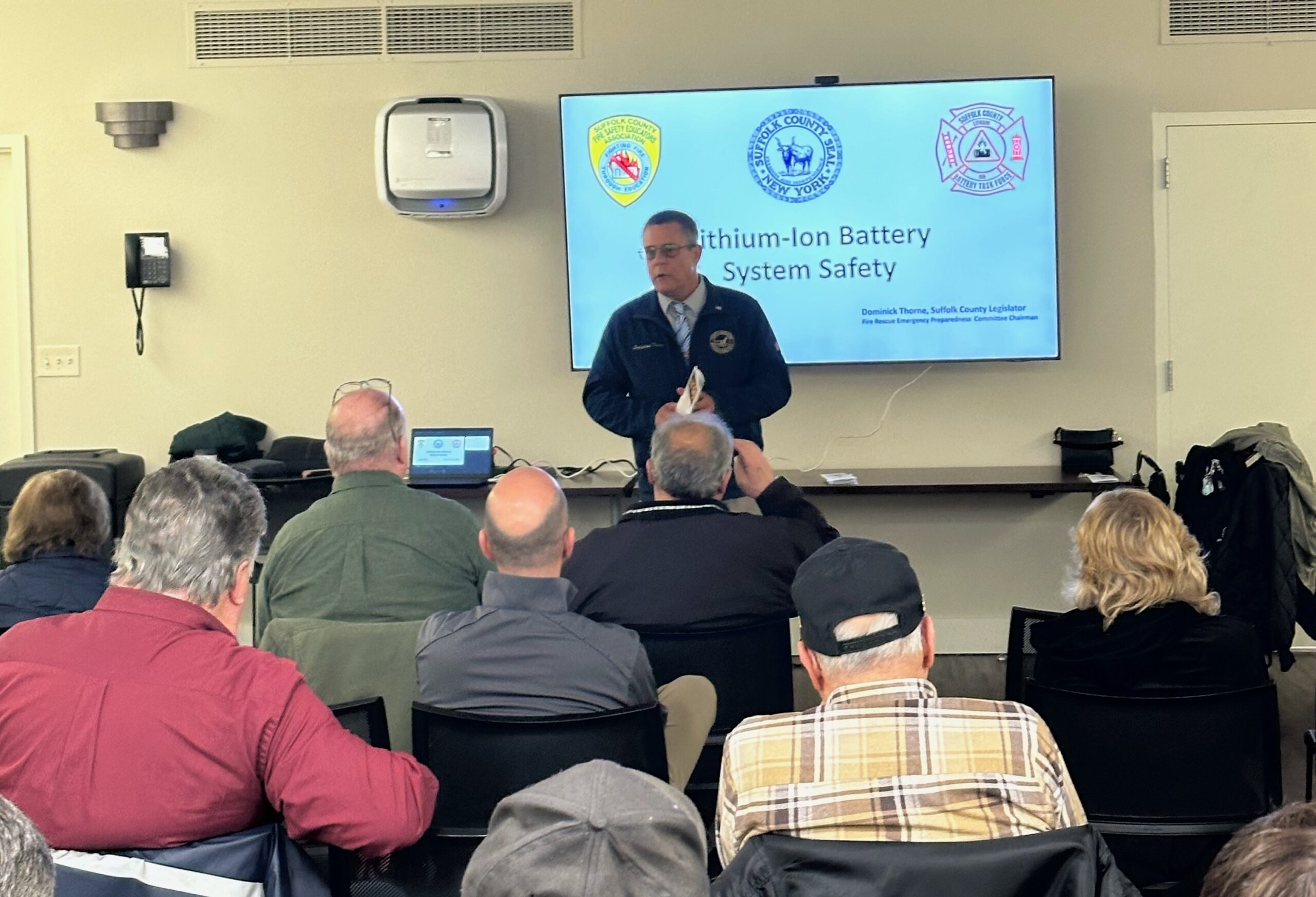By Cait Crudden
Lithium-ion batteries are everywhere in our modern lives, powering everything from smartphones and laptops to electric vehicles and power tools. Their lightweight design and high energy density make them an attractive choice for manufacturers and consumers alike. However, recent incidents have raised concerns about the safety risks associated with these powerful batteries, prompting calls for greater awareness and vigilance to prevent accidents and injuries.
One of the primary safety concerns surrounding lithium-ion batteries is the risk of thermal runaway, a phenomenon in which the battery overheats and can catch fire or explode. This can occur as a result of internal defects, physical damage, overcharging, or exposure to high temperatures. When a lithium-ion battery enters thermal runaway, it releases flammable electrolytes and generates intense heat, creating a potentially dangerous situation for anyone nearby.
In recent years, there have been numerous reports of lithium-ion batteries causing fires and explosions in various settings, including homes, offices, and public spaces. These incidents have resulted in property damage, injuries, and even fatalities, highlighting the need for greater awareness of the risks posed by these powerful energy sources. The fires can burn longer and reach higher temperatures than fires of other causes, which make them more difficult to put out.
One notable example occurred in 2016 when the Samsung smartphone was recalled due to reports of battery fires. The incident garnered widespread media attention and led to a massive product recall. In addition to electronic devices, lithium-ion batteries are also used extensively in electric vehicles (EVs), raising concerns about the safety of these vehicles in the event of a battery fire. Most recently in 2024, E-Bicycles and even Tesla vehicles have caught on fire from battery malfunctions. While EV manufacturers have implemented various safety measures to reduce the risk of thermal runaway, including battery management systems and thermal protection devices, incidents involving vehicle fires have still occurred, often leading to questions about the safety of EV technology, especially now that New York State has pursued creating EV school buses that potentially can put our children at risk while simply commuting to and from school.
Another concern is the improper disposal of lithium-ion batteries, which can pose environmental hazards if not handled correctly. When thrown in the trash or recycled improperly, lithium-ion batteries can release toxic chemicals and heavy metals into the soil and water, contaminating the environment and posing risks to human health.
To address many of these issues, local elected officials including Suffolk County Legislator Dominick Thorne (R-Patchogue) have advocated for lithium-ion battery fire education and a pause in implementing the use of them in certain situations. In a recent Patchogue Chamber of Commerce meeting, while addressing fire safety he stated, “These batteries can’t be extinguished by throwing water on them. Please don’t do that, in fact it can actually make it much worse,” said Legislator Thorne at a recent Patchogue Chamber of Commerce meeting.
Lithium-ion battery fires are Class-B fires, indicating the presence of flammable liquids, so a standard dry chemical or ABC extinguisher cannot put them out. Legislator Thorne has been a local leader on the subject, holding lithium-ion battery education courses within his district and attempting to regulate their use in our communities on a larger scale.
Thorne has sponsored a bill that would create a local law to require certification for the sale of lithium-ion storage batteries for electric assist bicycles and other powered mobility devices. The legislative intent for the bill states that the batteries are becoming more prevalent and there are little to no regulations regarding their safety. The Legislature found that the lithium-ion batteries contributed to 220 fires in New York City in 2022, and at least ten fatalities and 226 injuries in 2021 and 2022. The bill’s intent also states that the heightened risk and strength of related fires as well as emission of toxic chemicals prompts the need for regulation of sales, leases, or rentals of lithium-ion batteries.
The legislation has gained bipartisan support in the Suffolk County Legislature.
By raising awareness of the potential safety risks associated with lithium-ion batteries and promoting responsible usage and disposal practices, we can work together to prevent accidents and ensure the safe and sustainable use of this powerful technology.




